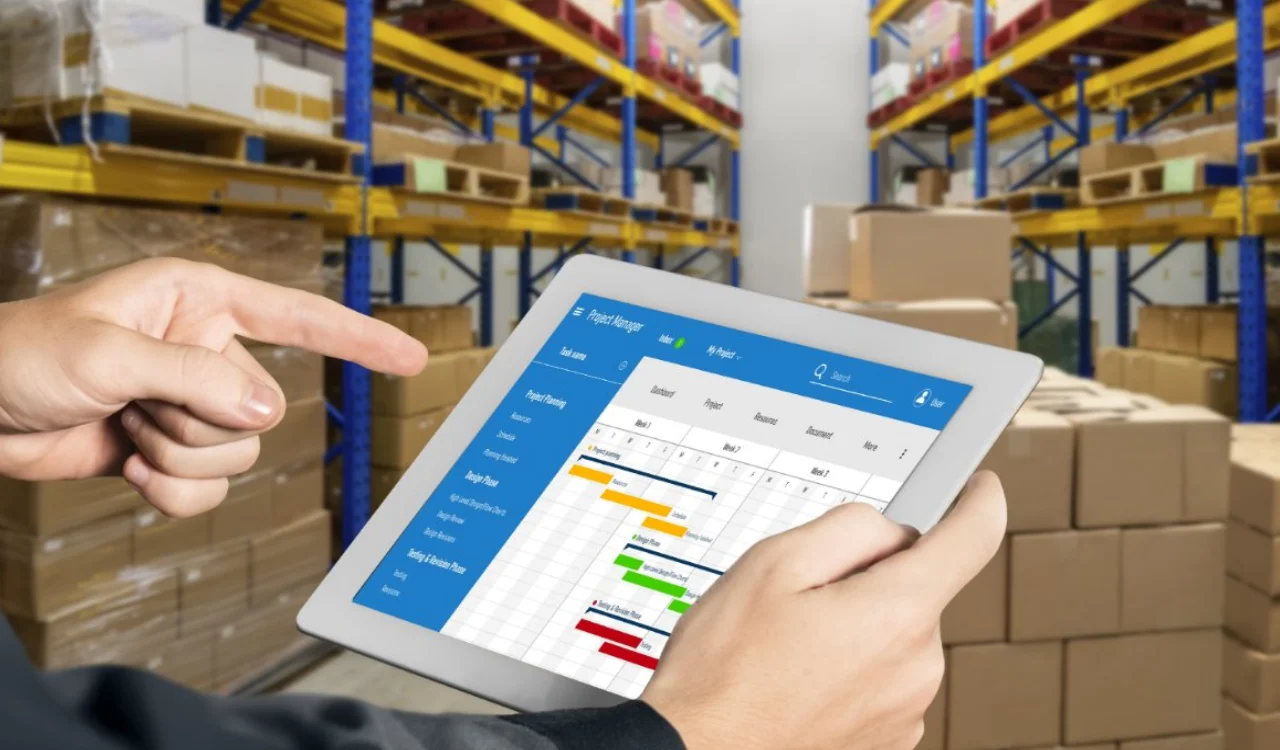
With the prevalence of technology in the modern world, artificial intelligence (AI), has emerged as a driving force in modern business. From predicting the future to delivering supplies, AI has significantly accelerated the supply chain management process.
In a report where Gartner Predicts the Future of Supply Chain Technology,it is stated that supply chain organizations will invest in applications that support AI by the year 2024. This blog delves into how artificial intelligence has potentially revolutionized the supply chain and how businesses can leverage this machine intelligence to gain a competitive edge in the market.
Explore: Importance of Artificial Intelligence in Supply Chains
Mastering Efficiency, Agility, and Innovation.
Traditional approaches often find it difficult to adjust to changing market conditions. Artificial intelligence is a game-changer in optimizing operations, enhancing efficiency, and revolutionizing logistics within the supply chain.
With machine learning-driven predictive analytics and advanced algorithms, it steers through the complexities of transportation, warehousing, and distribution. Let’s look at a few of the many ways AI is planning to reshape the supply chain:
AI-driven Risk Management
The AI system collects and analyzes numerous external factors to make accurate and calculated predictions. AI-powered risk management aids in predetermining and mitigating disruptions. e.g., inflation, stock, demand, storage, etc.
The system can architect ideal layouts for warehouse management, ensuring inventory accuracy, and efficient order fulfillment. AI plays a vital role in promoting efficient supply chain management in planning to optimize resources, minimize delays, reduce costs, and enhance overall customer satisfaction.
Find Out More: Delve Deeper into the Supply Chain Realities in a Changing World
AI’s Green Revolution
AI is emerging as a sustainability champion in the world of supply chain management. Its approach toward an eco-friendly supply chain focuses on reducing carbon footprints and paving the way to sustainability.
The system’s algorithm is designed to optimize resource utilization, reduce waste, and minimize environmental impact. The artificial intelligence system strives toward changing supply chains into eco-friendly powerhouses by driving energy efficiency and promoting responsible sourcing practices.
Case in Point
IWAY, IKEA’s supplier code of conduct encourages suppliers to follow certain environmental and humanitarian principles. And H&M’s ‘Let’s Close the Gap’ project, collects discarded clothes in decent condition and restores them and the garments that are beyond repair are recycled and reused as materials in new goods.
Redefining the Storage Game
Gone are the days of stockouts and inventories gathering dust. Smart algorithms help in solving the mystery of inventory discrepancies with unmatched precision. AI’s analytical expertise monitors stock-levels in real time and provides businesses with the foresight to keep their shelves perfectly stocked.
Smart Shelves
The struggle to balance inventory and meet customer demand is as old as time. AI analyzes historical data, market trends, and demand to predict inventory needs, ensuring businesses stay one step ahead. Organizations are turning toward AI, which uses these smart algorithms to predict demand, reduce material waste and inventory uncertainty, and lengthen the product life cycle.
Read Further: Discover Effective Strategies for Managing Evolving Demands Amidst Supply Chain Challenges
According to a Kearney study on ‘How can high-tech companies digest $250 billion in inventory’, on a global scale, the U.S. census data shows excess inventory amounts to trillions of dollars. AI has significantly redefined efficiency through replenishment strategies where products are stocked intelligently, keeping in mind the dynamic market patterns and meeting the highs and lows of demand, ensuring that businesses stay afloat in the competitive e-commerce landscape.
Learn More: AI-Driven Supply Chain Visibility in the Manufacturing Industry
Delivering Dynamics
Tailoring the Delivery Experience
Deliveries aren’t just about packages; they’re about people. AI tailors the delivery experience from personalized routes to real-time updates, assisting managers in making better and more prompt decisions while simultaneously ensuring that each customer receives not just a package but a seamless and satisfying experience. Automated systems ensure products are packed and delivered with consistency.
Navigating the Fast Lane
In the era of express deliveries, AI acts as a GPS with real-time route optimization, while every turn is calculated and every doorstep is reached, redefining the delivery finale. Smart algorithms enhance real-time tracking, offering unparalleled visibility into moments of goods.
Artificial intelligence determines the most economical means of transporting goods with precise calculations that improve the automation and accuracy of deliveries. The predictive data systems also monitor machine and vehicle conditions and minimize maintenance costs.
Check Out: 70+ Manufacturing KPIs for an Optimized Supply Chain Performance
Not a Trend, but a Necessity
With global supply chains strengthening their roots, the focus is on who makes the fastest buck. The incorporation of AI is not just about efficiency; it’s a transformation towards agility and innovation, creating a supply chain that thrives in the face of dynamic challenges. Based on statistics, the robotic-AI market size is predicted to grow by 2030.
Generative AI can bring companies and businesses closer to sustainable and resilient supply chains in the future. Embrace evolution, and let AI lead the way to a supply chain future that is efficient, resilient, and innovative.
Check Out: Syren’s Supply Chain Glossary: Terms and Definitions
Fill out the form below to connect with our supply chain experts and schedule a free demo!


